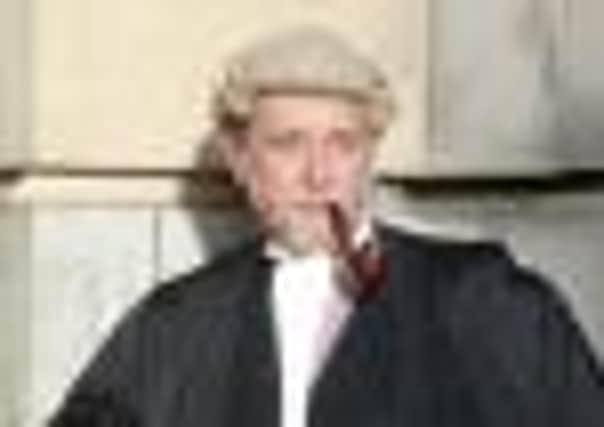Jurors who go online to research background of defendants ‘should face prison’


Donald Findlay QC will tell MSPs that the deterrent is necessary to counter the “real risk” to criminal trials from the rise of electronic and social media.
Findlay said the instant spread of background information online about defendants, including previous convictions, had brought about a “whole change in the way courts do business”.
Advertisement
Hide AdAdvertisement
Hide AdHe is calling for potential jail sentences for jurors who seek out such details, and computer checks to enforce this.
Findlay was speaking in advance of a Scottish Parliament justice committee hearing into the role of the media in criminal trials. MSPs are also concerned about the effect that the spread of potentially prejudicial information on social networking sites such as Twitter and Facebook may have on the justice system.
Findlay, who has been called to give evidence, said: “If an editor of a newspaper was to publish someone’s previous convictions in the course of a trial, if he appeared in front of me, he would go to jail for a very long time, because obviously that could be prejudicial to a trial.
“But now it seems people can put these things on sites on the internet and you can’t get at them, because it may be nobody knows where they are.”
Jurors are now told by most judges they should not use any electronic means to try to find out background information about the case and defendants.
But Findlay said: “I think we should go further and make it a criminal offence punishable by imprisonment if a juror accesses this information. And jurors, in fairness to them, should be told that in advance: that if it is discovered they have done this, they run the risk of several years in prison.
“They should also be advised that there may be random searches. Every now and again a juror’s computer should be checked so that people know this may happen and they are running a very real risk.”
Findlay is also concerned that many online bloggers writing about court cases may see themselves as “untouchable” by the authorities.
Advertisement
Hide AdAdvertisement
Hide Ad“I’ve had this in cases where people have put: ‘This monster has done this.’ If juries are going to access that, even potential jurors, that is a whole change in the way we do business and either the courts themselves or the government have got to look at it,” he said.
Findlay was at the centre of one of the first major controversies surrounding the clash between online media and the conduct of criminal cases when the 2001 trial of “limbs in the loch” killer William Beggs was almost halted.
The lawyer, who was defending the case, called unsuccessfully for it to be thrown out when information about Beggs’ previous convictions appeared online.
Leading human rights lawyer Aamer Anwar, who will also give evidence to the inquiry, said an investigation was required into the way juries behave in the age of massively increased access to historic material online.
Anwar said it was time for research into whether jurors were accessing background information, even though they are told not to.
He said: “In the modern age, where there’s mobile phones, iPads, information is available instantly, so it’s a case of how do the courts guard against it.
“There is a real concern that we seem to be ten years behind what Joe Bloggs out in the street is doing.”
On Tuesday, MSPs will look at the general role of the media in criminal trials, including allowing TV cameras to cover cases.
Advertisement
Hide AdAdvertisement
Hide AdThis was piloted in Scotland in April this year when the sentencing of David Gilroy, who murdered Suzanne Pilley, was televised in an effort to increase scrutiny and public accountability.
But Anwar warned there were “real issues” around letting cameras into court over the potential “Hollywoodisation” of trials.
“My concern is that at the end of the day, whether it’s STV News or BBC News, nobody in the courts is going to have editorial control over what goes out on a TV channel and it’s still going to be very much the case of a soundbite of two minutes that will be used,” he said.